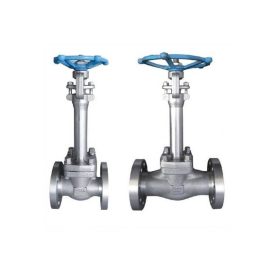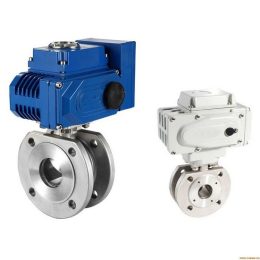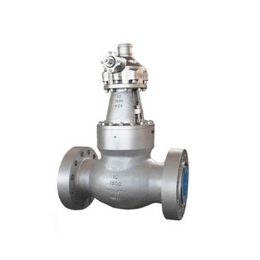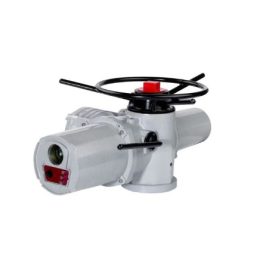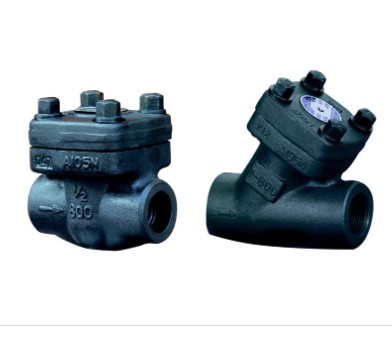
Forged Check Valve
Introduction
Valves are essential components in regulating the flow of fluids within a pipeline system. They play a crucial role in controlling the movement of liquids and gases. Among the most important types of valves is the check valve, which prevents backflow in a pipeline system. It allows fluid to flow in one direction while blocking it in the opposite direction.
The Forged Check Valve is a type of check valve known for its strength, durability, and reliability. It can withstand extreme pressures, temperatures, and corrosive environments, making it ideal for many industrial applications. Designed to meet industry standards for flow capacity, pressure rating, and temperature range, the Forged Check Valve comes in various sizes and configurations to fit specific needs.

Technical Specifications:
| Description | Specification |
|---|---|
| Sizes | NPS 1/2 to NPS 48 |
| Pressure Class | Class 150 to 2500 |
| Casting Materials | A105, LF2, F5, F11, F22, A182 F304 (L), F316 (L), F347, F321, F51 |
| Other Materials | Alloy 20, Monel, Inconel, Hastelloy |
| End Connections | SW, NPT, RF or BW |
| Bonnet Type | Bolted Bonnet, Welded Bonnet or Pressure Seal Bonnet |
Design Standard
Design & manufacture according to API 602, ASME B16.34
End Connection according to ASME B16.11 (SW), ASME B1.20.1 (NPT), ASME B16.5 (RF, RTJ)
Test & inspection according to API 598
Also available per NACE MR-0175, NACE MR-0103
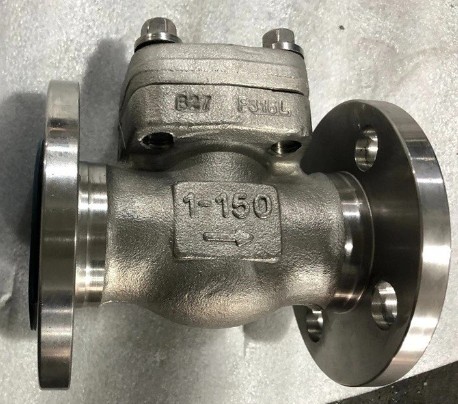
Advantages of Using a Forged Check Valve
A Forged Check Valve offers several advantages that make it a popular choice for pipeline systems. The valve’s forged body provides superior strength and durability, making it suitable for high-pressure and high-temperature applications. The valve’s compact design makes it easy to install and maintain, reducing downtime and increasing productivity. The valve’s low flow resistance minimizes pressure drop in the system, reducing energy consumption and operating costs. The valve’s leak-tight sealing ensures reliable performance and prevents backflow in the system.
Applications of Forged Globe Valve
The Forged Globe Valve is used in many industries, including oil and gas, power generation, chemical processing, and water treatment. Its versatility makes it suitable for various applications, such as:
- Flow Regulation: The Forged Globe Valve is used to regulate the flow of fluids in pipeline systems. It is designed to provide accurate and precise control of the flow rate, making it suitable for applications where flow control is critical.
- Pressure Control: The Forged Globe Valve is used to control the pressure in pipeline systems. It is designed to withstand high-pressure environments, making it suitable for applications where pressure control is essential.
- Temperature Control: The Forged Globe Valve is used to control the temperature of fluids in pipeline systems. It is designed to withstand high-temperature environments, making it suitable for applications where temperature control is critical.
- Fluid Isolation: The Forged Globe Valve is used to isolate fluids in pipeline systems. It is designed to provide reliable and leak-tight sealing, making it suitable for applications where fluid isolation is necessary.

Installation of Forged Globe Valve
The installation of the Forged Globe Valve requires careful consideration to ensure optimal performance and reliability. Some of the key installation steps include:
- Valve Positioning: The valve should be installed in a position that allows for easy operation and maintenance.
- Pipeline Preparation: The pipeline should be cleaned and prepared to ensure that there is no debris or foreign matter that could damage the valve.
- Bolting: The valve should be bolted to the pipeline using the correct torque settings to ensure a leak-tight seal.
- Operation and Maintenance: The valve should be operated and maintained according to the manufacturer’s instructions to ensure optimal performance and reliability.
Frequently Asked Questions (FAQ)
Q: What is a pressure seal bonnet? A: A pressure seal bonnet is a valve design feature that provides a tight seal at high pressures, preventing leaks and ensuring safe operation.
Q: What is a swing check valve? A: A swing check valve is a valve type that allows for efficient and reliable flow control.
Q: What applications is the Pressure Seal Bonnet Check Valve suitable for? A: The Pressure Seal Bonnet Check Valve is suitable for critical applications where high pressure and temperature are present, such as power plants, petrochemical plants, and oil refineries.
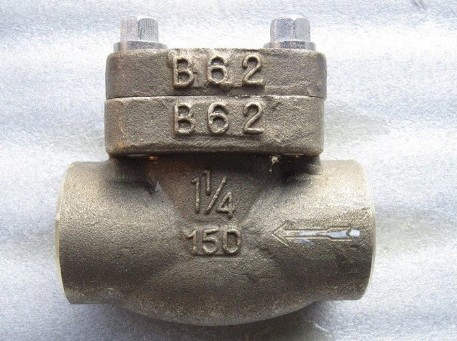
Conclusion
A Forged Check Valve is a reliable and durable component that plays a crucial role in regulating the flow of fluids in a pipeline system. Its technical specifications and design standards ensure superior performance, while its advantages make it a popular choice for various applications. If you’re looking for a valve that offers superior strength, durability, and reliability, a Forged Check Valve is an excellent choice.
- “Understanding the Benefits of Trunnion Ball Valves for Efficient Fluid Regulation”
- Top Entry Ball Valve
- Points To Keep In Mind When Installing Valves
- Understanding Floating Ball Valves
- What Are The Criteria For The Selection And Use Of Check Valve Manufacturers?
- How to distinguish the structure of the ball valve
